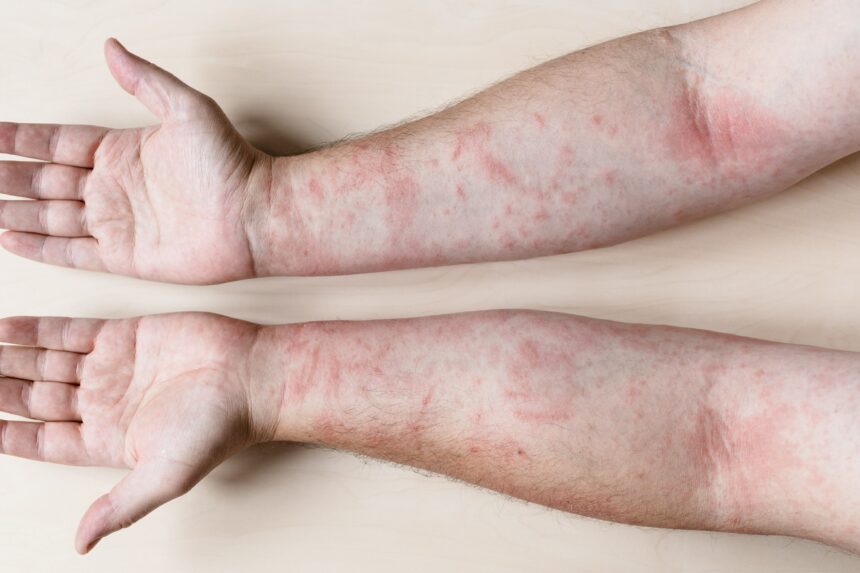The advantages of Traditional Chinese medicine (TCM) in treating skin diseases lie in its comprehensive and individualized approach. Stubborn skin diseases present a challenge for both TCM and Western medicine, especially cases that have been unresponsive to long-term steroid use. TCM recognizes both internal and external factors as the causes of skin diseases, which manifest with various symptoms such as rashes, nodules, itching, and exudation. With a rich history and clinical experience in skin disease prevention and treatment, TCM focuses on personalized treatment strategies based on differentiating the pattern of the disease.
A proficient TCM dermatologist should possess a solid foundation in internal medicine, accurate and skilled application of various herbal medicines, including decoctions, creams, and pills, as well as extensive experience in external treatment methods. In clinical practice, many patients I have encountered have already undergone ineffective Western medicine treatment or have received TCM treatment that primarily targets internal regulation, resulting in frequent recurrences and unsatisfactory outcomes.
TCM and Western medicine have different approaches to treating stubborn skin diseases. However, the integration of both medical systems is gradually gaining recognition. Some TCM treatment methods for stubborn skin diseases include:
Syndrome differentiation and treatment: Individualized treatment plans are formulated based on the patient’s symptoms, constitution, and etiology, targeting the specific conditions of the disease.
External treatment methods: Complementing internal treatment, external therapies such as acupuncture, cupping, blood-letting, and topical herbal applications play a significant role in alleviating skin symptoms and promoting skin recovery. Topical herbal applications are particularly suitable for patients who fear needle and oral medication, especially children and those with a weak constitution.
Herbal formulas: TCM often utilizes herbal formulas to regulate organ functions and improve skin conditions in stubborn skin diseases. These formulas may have anti-inflammatory, antiallergic, and circulation-enhancing effects.
Furthermore, TCM practitioners can analyze modern medical examination results to gain insights into the trends and changes in the patient’s various indicators. This enables a more precise application of homeopathic, root-cutting, and reversal therapies, thus improving treatment specificity and efficacy, while effectively managing the patient’s overall health.
In TCM theory, the liver governs smooth flow, including Qi regulation and emotional balance. Emotional disturbances can lead to liver Qi stagnation, resulting in the “stagnant heat.” This condition involves the upward and outward spread of internal heat, which can disturb the lung and spleen functions. If liver Qi stagnation affects the unobstructed flow of the pores and hair follicles (referred to as “pores regulation” by TCM), it may exacerbate skin conditions. Therefore, in the treatment, addressing liver Qi stagnation, clearing heat, and resolving dampness are essential. Different approaches, such as soothing, clearing, and softening the liver, should be applied at different stages, and prescriptions should be tailored accordingly.
Dietary adjustments serve as an adjunctive therapy for skin diseases, emphasizing a light and fresh diet, avoiding spicy, greasy, and heavily processed foods. Increased intake of fresh fruits, vegetables, nuts, whole grains, and high-quality protein can provide nutrition, enhance immunity, and alleviate various symptoms.
Comprehensive and individualized treatment is the key to addressing stubborn skin diseases. Although the treatment may require a longer time and patient cooperation, the integrated use of multiple methods in TCM treatment can improve effectiveness and reduce the likelihood of recurrence.
Binglin Li
Registered TCMP. Registered Acupuncturist

